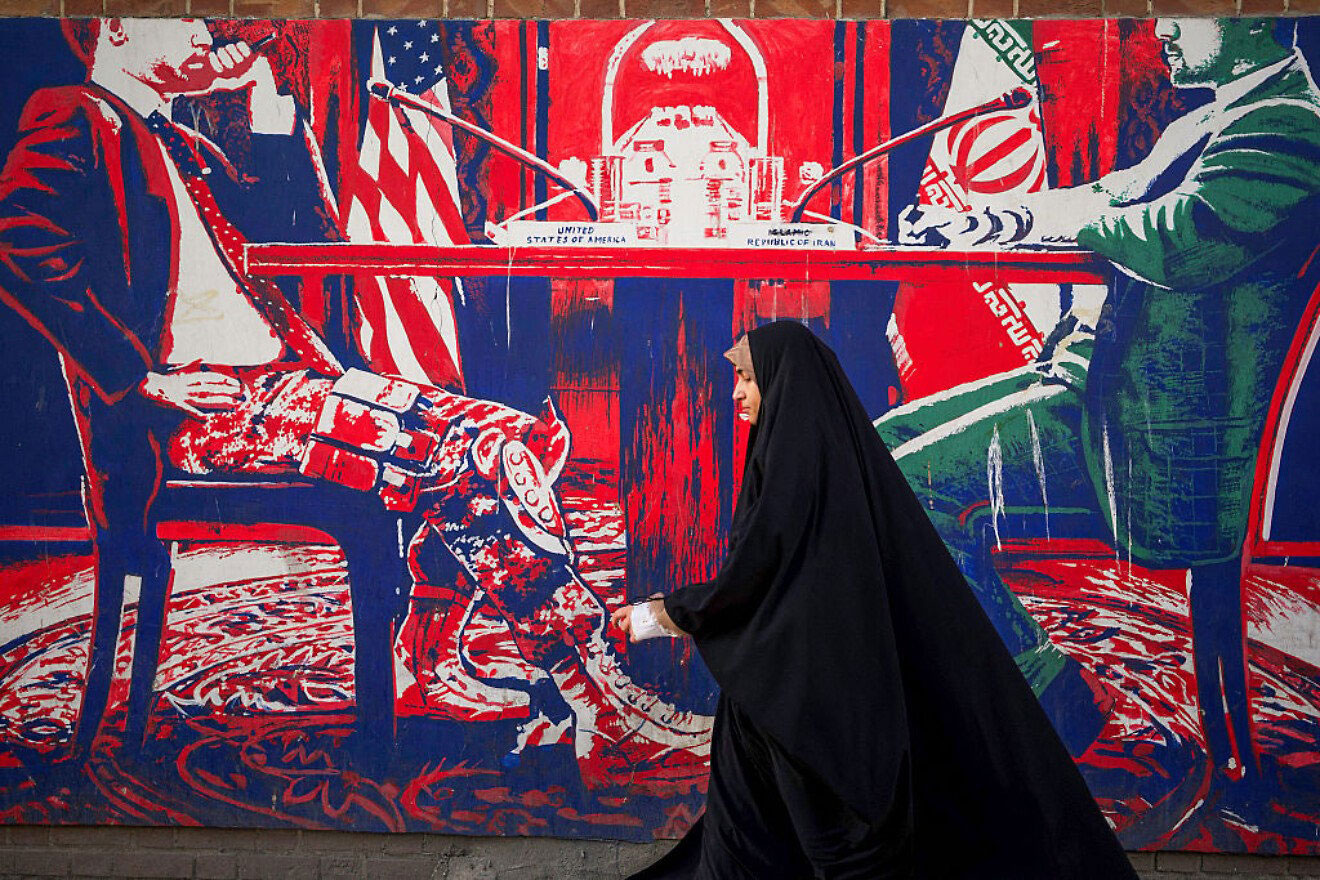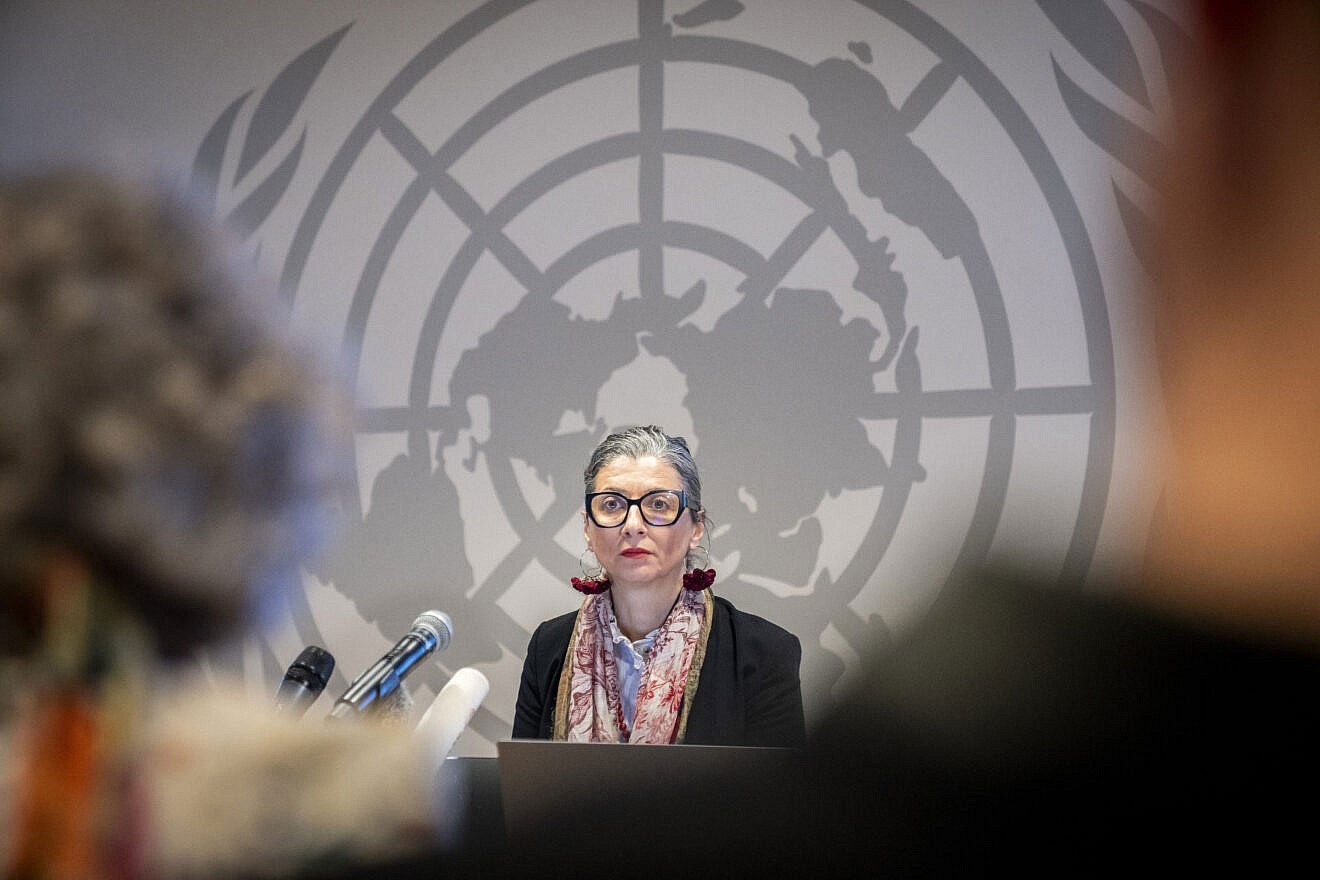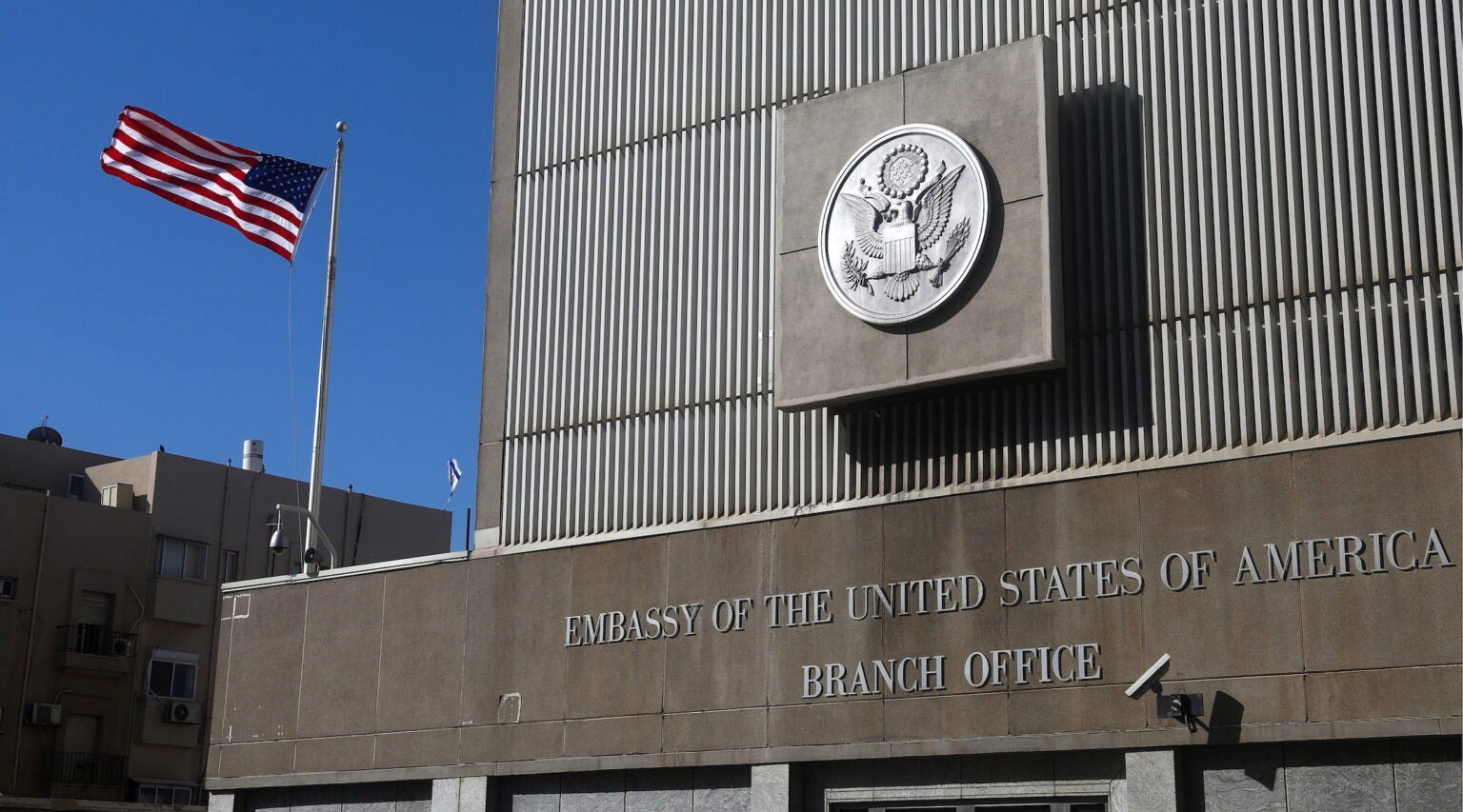Courtesy of JNS. Photo credit: Mohammadali Najib/Middle East Images/AFP via Getty Images
Iranians pass by anti-American murals painted on the walls of the former U.S. embassy in Tehran, April 16, 2025
(JNS) — In recent backchannel negotiations in Oman, Iran proposed to the United States a three-stage deal aimed at capping the Islamic Republic’s uranium enrichment in exchange for phased sanctions relief, according to diplomatic sources in Tehran.
The proposal was delivered in writing by Iranian Foreign Minister Abbas Araghchi to U.S. Special Envoy Steve Witkoff during three hours of talks on Saturday, reported Iran International.
In the first phase, Iran would temporarily reduce uranium enrichment to 3.67% — the limit set under the 2015 nuclear deal — in return for access to frozen financial assets and permission to export oil.
The second phase envisions a permanent end to high-level enrichment, and renewed cooperation with the International Atomic Energy Agency (IAEA), including the reinstatement of surprise inspections under the agency’s “Additional Protocol for verification of nuclear safeguards.” This would be contingent on broader U.S. sanctions relief and European powers refraining from reimposing U.N. sanctions.
In the final stage, Iran would transfer its highly enriched uranium stockpile to a third country, while the U.S. Congress would approve a new nuclear agreement and lift primary and secondary sanctions.
Though Iran insists it is not pursuing nuclear weapons, U.S. intelligence maintains that Tehran has not made a definitive decision to build one. Witkoff reportedly welcomed the proposal, surprising the Iranian delegation in Muscat. Supreme Leader Ayatollah Ali Khamenei also appeared encouraged by the outcome, calling the talks a “good first step.”
However, skepticism remains. A diplomatic source outside Iran suggested Tehran’s main goal is to stall for time to rebuild air defense systems and missile capabilities damaged in recent Israeli attacks.
Israeli Prime Minister Netanyahu claimed credit for undermining Iran’s nuclear progress, while IAEA chief Rafael Grossi warned that Tehran remains dangerously close to weapons capability, urging greater international verification.





